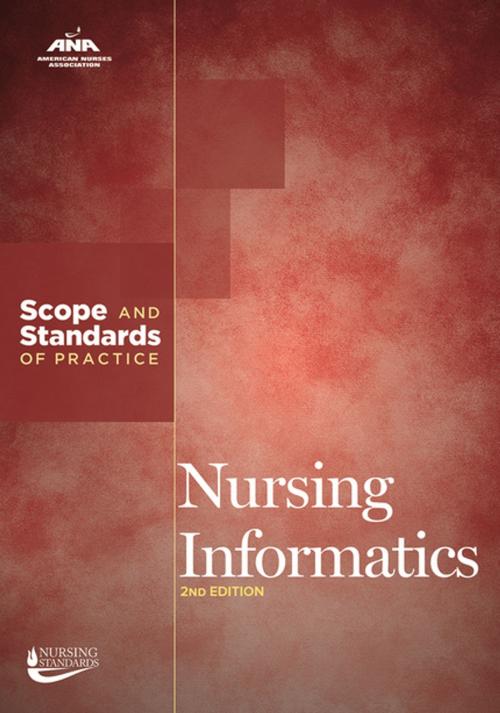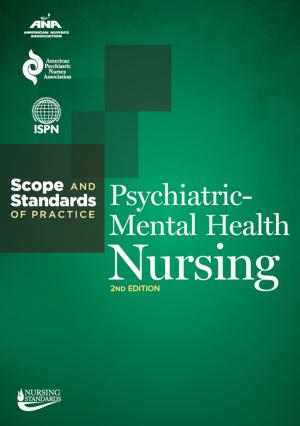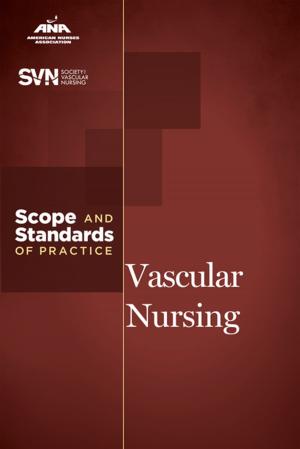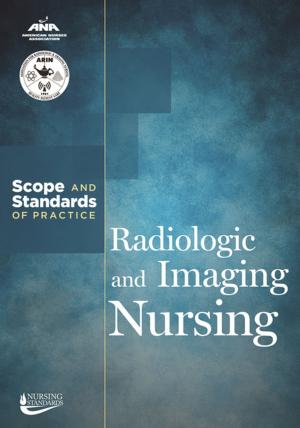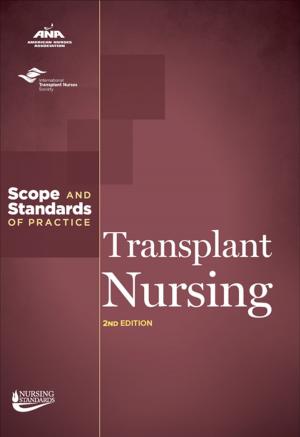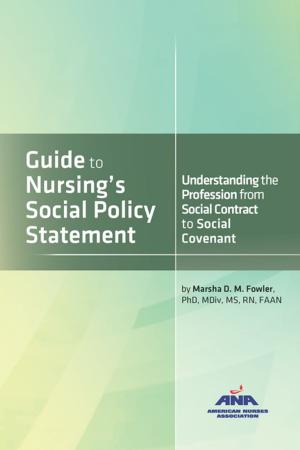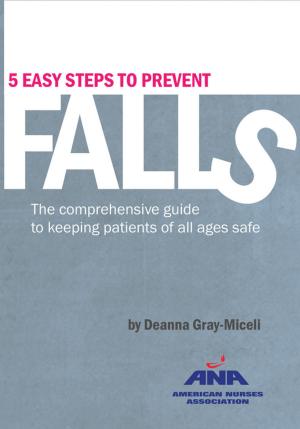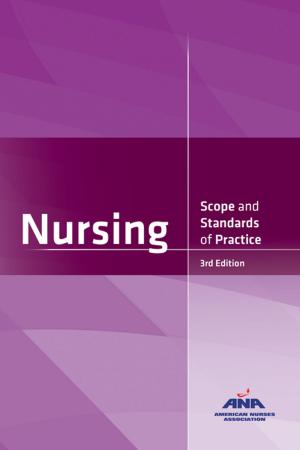Nursing Informatics
Scope and Standards of Practice
Nonfiction, Health & Well Being, Medical, Nursing, Research & Theory, Fundamentals & Skills, Reference| Author: | American Nurses Association | ISBN: | 9781558105812 |
| Publisher: | American Nurses Association | Publication: | November 4, 2014 |
| Imprint: | Nursesbooks | Language: | English |
| Author: | American Nurses Association |
| ISBN: | 9781558105812 |
| Publisher: | American Nurses Association |
| Publication: | November 4, 2014 |
| Imprint: | Nursesbooks |
| Language: | English |
Nursing informatics (NI) is the specialty that integrates nursing science with multiple information and analytical sciences to identify, define, manage and communicate data, information, knowledge and wisdom in nursing practice. For many people, NI, and health care informatics in general, are about technology. This is especially true of electronic health records (EHRs) that are required of all care facilities. That is just one among many aspects of nursing informatics, a distinctive practice specialty that is the focus of this new publication. The second edition of Nursing Informatics: Scope and Standards of Practice is the most comprehensive, up-to-date resource available in this subject area. The book covers the full scope of nursing informatics and outlines the competency level of nursing practice and professional performance expected from all informatics nurses and nurse specialists. In addition, it details the nursing informatics competencies needed by any RN, spans all nursing careers and roles, and reflects the impact of informatics in any health care practice environment. This is a must-read for nurses, as informatics touches on every RN’s practice. The publication’s scope of practice addresses the context of the who, what, where, when, why and how of NI practice for informatics nurses and informatics nurse specialists. That detailed scope of practice covers the following topics: Metastructures, Concepts and Tools of Nursing Informatics Functional Areas of Nursing Informatics Preparation for Nursing Informatics Specialty Practice Ethics in Nursing Informatics The Future of Nursing Informatics Trends in Regulatory Changes and Quality Standards And much more… The 16 nursing informatics standards, which provide a framework for evaluating practice outcomes and goals, are those to which all informatics nurses are held accountable for their practice. The set of specific competencies accompanying each standard serves as essential evidence of compliance with that standard. This foundational volume is primarily directed to those nurses involved with NI practice, education, administration and research. Other nurses, allied health care providers, researchers and scholars will find value in this content, as will employers, insurers, lawyers, policy makers, regulators and other stakeholders.
Nursing informatics (NI) is the specialty that integrates nursing science with multiple information and analytical sciences to identify, define, manage and communicate data, information, knowledge and wisdom in nursing practice. For many people, NI, and health care informatics in general, are about technology. This is especially true of electronic health records (EHRs) that are required of all care facilities. That is just one among many aspects of nursing informatics, a distinctive practice specialty that is the focus of this new publication. The second edition of Nursing Informatics: Scope and Standards of Practice is the most comprehensive, up-to-date resource available in this subject area. The book covers the full scope of nursing informatics and outlines the competency level of nursing practice and professional performance expected from all informatics nurses and nurse specialists. In addition, it details the nursing informatics competencies needed by any RN, spans all nursing careers and roles, and reflects the impact of informatics in any health care practice environment. This is a must-read for nurses, as informatics touches on every RN’s practice. The publication’s scope of practice addresses the context of the who, what, where, when, why and how of NI practice for informatics nurses and informatics nurse specialists. That detailed scope of practice covers the following topics: Metastructures, Concepts and Tools of Nursing Informatics Functional Areas of Nursing Informatics Preparation for Nursing Informatics Specialty Practice Ethics in Nursing Informatics The Future of Nursing Informatics Trends in Regulatory Changes and Quality Standards And much more… The 16 nursing informatics standards, which provide a framework for evaluating practice outcomes and goals, are those to which all informatics nurses are held accountable for their practice. The set of specific competencies accompanying each standard serves as essential evidence of compliance with that standard. This foundational volume is primarily directed to those nurses involved with NI practice, education, administration and research. Other nurses, allied health care providers, researchers and scholars will find value in this content, as will employers, insurers, lawyers, policy makers, regulators and other stakeholders.
